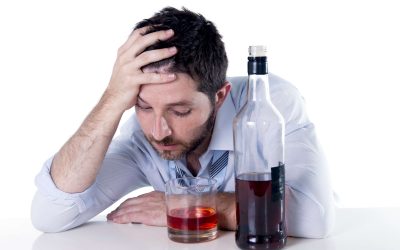It means you shouldn’t drink more than six medium glasses of wine or six pints of lager a week. Alcohol can also contain a lot of calories, which can lead to putting on weight. The below information can help someone adhere to the one-drink-per-day limit for females and the two-drinks-per-day limit for males. The same is true of cocktails made with regular soda or mixers, simple syrup and other types of added sugar, or fruit juice.
It is often used as a way to assist the development of social relationships; especially as this life-stage involves exploring their newfound independence [6, 21]. This was exemplified in this study with all participants partaking in social drinking in excess of the ADA and New Zealand Ministry of Health guidelines [13, 15]. Other common risky behaviours included a reduction in the frequency of glycaemic monitoring and incoherence whilst managing insulin dosages. These states of reactive hypoglycaemia can be worsened by intoxication leading to a general hypoglycaemia unawareness; thus, delaying glycaemic intervention. The illustrative case presented demonstrates this risk with severe hypoglycaemia and unconsciousness as a result, despite protection available to them from automated insulin delivery low and glucose suspend.
of 7 / Alcohol Use Disorder
You should also avoid strenuous activity for at least 48 hours before drinking. Calories can quickly add up if you consume excess amounts of alcohol. This may cause the body to store calories as fat, leading to weight gain.
Notably most participants found that in their experience their blood sugars would normally increase with alcohol consumption. Nearly all of these individuals then found that their blood glucose levels would begin to fall, especially overnight https://ecosoberhouse.com/ (quote 5). If you have diabetes, you may wonder if it’s safe to drink alcohol. While many people with diabetes can drink alcohol in moderation, it’s important to understand the possible risks of alcohol use and what you can do to lower them.
Alcohol and your emotions
Initially, alcohol causes an increase in blood glucose, but it will drop after a few hours. Diabetes is a chronic disease characterized by hyperglycemia or high blood sugar. When a person has diabetes, their body cannot use sugar for energy, causing an excess of blood glucose. And always diabetes and alcohol have breakfast – it will help you manage your blood sugar. If you can’t face food or you’ve been sick, drink as many fluids as you can, including some sugary (non-diet) drinks if your blood sugar levels are low. ALWAYS consume alcohol with a meal or snack that contains carbohydrates.
Heavy drinking, particularly in diabetics, also can cause the accumulation of certain acids in the blood that may result in severe health consequences. Finally, alcohol consumption can worsen diabetes-related medical complications, such as disturbances in fat metabolism, nerve damage, and eye disease. Hypertriglyceridemia is an important risk factor for cardiovascular diseases. Moreover, elevated triglyceride levels can cause severe inflammation of the pancreas (i.e., pancreatitis). Heavy drinking (i.e., more than 140 grams of pure alcohol, or approximately 12 standard drinks, per day) can cause alcohol-induced hypertriglyceridemia in both diabetics and nondiabetics (Chait et al. 1972).
Diabetes Clinical Trials
An occasional social drink is usually harmless for people with diabetes. But if you do have diabetes, drinking safely involves more planning. Consider what type of alcohol you are drinking, when, and how much. Understand how your medications work and how alcohol can affect them.
- To help keep health risks from alcohol at a low level, it’s safest not to regularly drink more than 14 units a week.
- It is no secret that alcohol consumption can lead to health problems.
- Heavy alcohol consumption (i.e., 200 grams of pure alcohol, or approximately 16 standard drinks, per day) can cause ketoacidosis in both diabetics and nondiabetics (Wrenn et al. 1991).
- The most commonly used websites for information were forms of social media with personal anecdotes; some participants did use more reputable sources such as ‘Beyond Type 1 [19].
Your blood sugar can drop for up to 24 hours after alcohol consumption. For those with Type 1 diabetes or those who take sulfonylureas which tell the pancreas to make insulin constantly, drinking too much can cause them to forget to eat. They are at a very high risk for hypoglycemia because without food, they have no sugar intake. Also, as mentioned before, drinking too much can cause the same signs as hypoglycemia and a low blood sugar may not be detected quickly enough. Not only should you check your blood sugar before drinking, but you should also check it while you are drinking and frequently for 24 hours afterwards. Your sugar can drop up to 24 hours after the consumption of alcohol.
